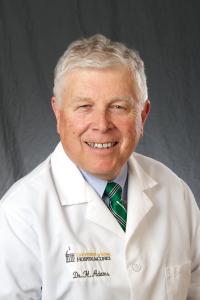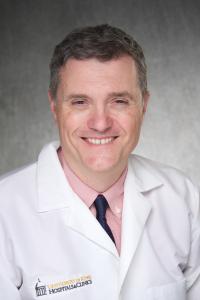Vascular Neurology Fellowship
About the Program
The current ACGME-approved Vascular Neurology Fellowship Program builds on the rich tradition of training stroke fellows at the University of Iowa and capitalize the institutional excellent clinical, training and research resources. We are committed to training outstanding physicians in vascular Neurology.
University of Iowa is one of the 25 RCCs nationally part of the NIH-StrokeNet network.
The Group at the University of Iowa is involved in many intra and extramural research projects. Research and scholar activities are highly encouraged. Fellows will have the opportunity to be mentored in their research enterprises.
These are some of the latest publications:
- Petersen NH, Kodali S, Meng C, Li F, Nguyen CK, Peshwe KU, Strander S, Silverman A, Kimmel A, Wang A, Anadani M, Almallouhi E, Spiotta AM, Kim JT, Giles JA, Keyrouz SG, Farooqui M, Zevallos C, Maier IL, Psychogios MN, Liman J, Riou-Comte N, Richard S, Gory B, Quintero Wolfe S, Brown PA, Fargen KM, Mistry EA, Fakhri H, Mistry AM, Wong KH, de Havenon A, Nascimento FA, Kan P, Matouk C, Ortega-Gutiérrez S, Sheth KN. Blood Pressure Trajectory Groups and Outcome After Endovascular Thrombectomy: A Multicenter Study. Stroke. 2021 Nov 16:STROKEAHA121034408. doi: 10.1161/STROKEAHA.121.034408. Epub ahead of print. PMID: 34781705.
- Jovin TG, Nogueira RG, Lansberg MG, Demchuk AM, Martins SO, Mocco J, Ribo M, Jadhav AP, Ortega-Gutierrez S, Hill MD, Lima FO, Haussen DC, Brown S, Goyal M, Siddiqui AH, Heit JJ, Menon BK, Kemp S, Budzik R, Urra X, Marks MP, Costalat V, Liebeskind DS, Albers GW. Thrombectomy for anterior circulation stroke beyond 6 h from time last known well (AURORA): a systematic review and individual patient data meta-analysis. Lancet. 2021 Nov 11:S0140-6736(21)01341-6. doi: 10.1016/S0140-6736(21)01341-6. Epub ahead of print. PMID: 34774198.
- Samaniego EA, Roa JA, Hayakawa M, Chen CJ, Sheehan JP, Kim LJ, Abecassis IJ, Levitt MR, Guniganti R, Kansagra AP, Lanzino G, Giordan E, Brinjikji W, Bulters D, Durnford A, Fox WC, Polifka AJ, Gross BA, Amin-Hanjani S, Alaraj A, Kwasnicki A, Starke RM, Sur S, van Dijk JMC, Potgieser ARE, Satomi J, Tada Y, Abla A, Winkler E, Du R, Lai PMR, Zipfel GJ, Derdeyn CP. Dural arteriovenous fistulas without cortical venous drainage: presentation, treatment, and outcomes. J Neurosurg. 2021 Sep 10:1-9. doi: 10.3171/2021.1.JNS202825. Epub ahead of print. PMID: 34507278.
- Raghuram A, Varon A, Roa JA, Ishii D, Lu Y, Raghavan ML, Wu C, Magnotta VA, Hasan DM, Koscik TR, Samaniego EA. Semiautomated 3D mapping of aneurysmal wall enhancement with 7T-MRI. Sci Rep. 2021 Sep 15;11(1):18344. doi: 10.1038/s41598-021-97727-0. PMID: 34526579; PMCID: PMC8443635.
- Garg A, Dhanesha N, Shaban A, Samaniego EA, Chauhan AK, Leira EC. Risk of Venous Thromboembolism in Hospitalized Patients with Acute Ischemic Stroke Versus Other Neurological Conditions. J Stroke Cerebrovasc Dis. 2021 Nov;30(11):106077. doi: 10.1016/j.jstrokecerebrovasdis.2021.106077. Epub 2021 Sep 6. PMID: 34500199.
- Fakih R, Roa JA, Bathla G, Olalde H, Varon A, Ortega-Gutierrez S, Derdeyn C, Adams HP Jr, Hasan DM, Leira EC, Samaniego EA. Detection and Quantification of Symptomatic Atherosclerotic Plaques With High-Resolution Imaging in Cryptogenic Stroke. Stroke. 2020 Oct 1:STROKEAHA120031167. doi: 10.1161/STROKEAHA.120.031167. Epub ahead of print. PMID: 32998652.
- Sequeiros JM, Roa JA, Sabotin RP, Dandapat S, Ortega-Gutierrez S, Leira EC, Derdeyn CP, Bathla G, Hasan DM, Samaniego EA. Quantifying Intra-Arterial Verapamil Response as a Diagnostic Tool for Reversible Cerebral Vasoconstriction Syndrome. AJNR Am J Neuroradiol. 2020 Sep 17. doi: 10.3174/ajnr.A6772. Epub ahead of print. PMID: 32943423.
- Roa JA, Sarkar D, Zanaty M, Ishii D, Lu Y, Karandikar NJ, Hasan DM, Ortega SB, Samaniego EA. Preliminary results in the analysis of the immune response after aneurysmal subarachnoid hemorrhage. Sci Rep. 2020 Jul 16;10(1):11809. doi: 10.1038/s41598-020-68861-y. PMID: 32678268; PMCID: PMC7367262.
- Dandapat S, Mendez-Ruiz A, Martínez-Galdámez M, Macho J, Derakhshani S, Foa Torres G, Pereira VM, Arat A, Wakhloo AK, Ortega-Gutierrez S. Review of current intracranial aneurysm flow diversion technology and clinical use. J Neurointerv Surg. 2020 Sep 25:neurintsurg-2020-015877. doi: 10.1136/neurintsurg-2020-015877. Epub ahead of print. PMID: 32978269.
- Ortega-Gutierrez S, Aperi B, Mendez-Ruiz A, Shah P, Torbey MT. Adenosine Receptor Modulation of Hypoxic-Ischemic Injury in Striatum of Newborn Piglets. Curr Neurovasc Res. 2020 Aug 31. doi: 10.2174/1567202617999200831152233. Epub ahead of print. PMID: 32867657.
- Garg A, Bathla G, Molian V, Limaye K, Hasan D, Leira EC, Derdeyn CP, Adams HP, Shaban A. Differential Risk Factors and Outcomes of Ischemic Stroke due to Cervical Artery Dissection in Young Adults. Cerebrovasc Dis. 2020 Sep 25:1-7. doi: 10.1159/000510437. Epub ahead of print. PMID: 32980848.
- • Dhanesha N, Schnell T, Rahmatalla S, DeShaw J, Thedens D, Parker BM, Zimmerman MB, Pieper AA, Chauhan AK, Leira EC. Low-Frequency Vibrations Enhance Thrombolytic Therapy and Improve Stroke Outcomes. Stroke. 2020 Jun;51(6):1855-1861. doi: 10.1161/STROKEAHA.120.029405. Epub 2020 May 13. PMID: 32397935; PMCID: PMC7263385.
- • Leira EC, Russman AN, Biller J, Brown DL, Bushnell CD, Caso V, Chamorro A, Creutzfeldt CJ, Cruz-Flores S, Elkind MSV, Fayad P, Froehler MT, Goldstein LB, Gonzales NR, Kaskie B, Khatri P, Livesay S, Liebeskind DS, Majersik JJ, Moheet AM, Romano JG, Sanossian N, Sansing LH, Silver B, Simpkins AN, Smith W, Tirschwell DL, Wang DZ, Yavagal DR, Worrall BB. Preserving stroke care during the COVID-19 pandemic: Potential issues and solutions. Neurology. 2020 Jul 21;95(3):124-133. doi: 10.1212/WNL.0000000000009713. Epub 2020 May 8. PMID: 32385186; PMCID: PMC7455350.
- Shaban A, Leira EC. Remote Ischemic Conditioning: Increasing the Pressure for Rigorous Efficacy Trials. J Am Heart Assoc. 2019 Dec 3;8(23):e014856. doi: 10.1161/JAHA.119.014856. Epub 2019 Nov 21. PMID: 31747865; PMCID: PMC6912981.
- Vahidy FS, Sozener CB, Meeks JR, Chhatbar PY, Ramos-Estebanez C, Ayodele M, Richards RJ, Sharma R, Wilbrand SM, Prabhakaran S, Bregman BS, Adams HP Jr, Jordan LC, Liebeskind DS, Tirschwell D, Janis LS, Marshall RS, Kleindorfer D. National Institutes of Health StrokeNet Training Core. Stroke. 2020 Jan;51(1):347-352. doi: 10.1161/STROKEAHA.119.027946. Epub 2019 Dec 4. PMID: 31795907; PMCID: PMC7206871.
- Adams HP Jr. Cancer and Cerebrovascular Disease. Curr Neurol Neurosci Rep. 2019 Aug 23;19(10):73. doi: 10.1007/s11910-019-0985-0. PMID: 31440841.
- Zevallos CB, Dandapat S, Ansari S, Farooqui M, Quispe-Orozco D, Mendez-Ruiz A, Derdeyn C, Hasan D, Samaniego EA, Ortega-Gutierrez S. Clinical and Imaging Features of Contrast-Induced Neurotoxicity After Neurointerventional Surgery. World Neurosurg. 2020 Oct;142:e316-e324. doi: 10.1016/j.wneu.2020.06.218. Epub 2020 Jul 4. PMID: 32634632.
- Zanaty M, Osorno-Cruz C, Byer S, Roa JA, Limaye K, Ishii D, Nakagawa D, Torner J, Yongjun L, Ortega-Gutiérrez S, Samaniego EA, Allan L, Hasan D. Tirofiban Protocol Protects Against Delayed Cerebral Ischemia: A Case-Series Study. Neurosurgery. 2020 May 16:nyaa170. doi: 10.1093/neuros/nyaa170. Epub ahead of print. PMID: 32415850.
- Zanaty M, Roa JA, Nakagawa D, Chalouhi N, Allan L, Al Kasab S, Limaye K, Ishii D, Samaniego EA, Jabbour P, Torner JC, Hasan DM. Aspirin associated with decreased rate of intracranial aneurysm growth. J Neurosurg. 2019 Oct 29:1-8. doi: 10.3171/2019.6.JNS191273. Epub ahead of print. PMID: 31662579.
- Limaye K, Bryant A, Bathla G, Dai B, Kasab SA, Shaban A, Samaniego EA, Hasan D, Policeni B, Leira E, Derdeyn C, Ortega-Gutierrez S. Computed Tomography Angiogram Derived From Computed Tomography Perfusion Done with Low Iodine Volume Protocol Preserves Diagnostic Yield for Middle Cerebral Artery-M2 Occlusions. J Stroke Cerebrovasc Dis. 2019 Dec;28(12):104458. doi: 10.1016/j.jstrokecerebrovasdis.2019.104458. Epub 2019 Oct 26. PMID: 31662241.
Vascular Neurology Fellowship Training
The vascular neurology fellowship alternates inpatient rotations with outpatient care and electives.
Inpatient Stroke Service
The core rotation is the inpatient stroke service. The fellow attends the service an average of 4-5 months a year. During that time, the stroke fellow serves as a link between the stroke attending and the senior and Junior neurology residents. Patients are admitted to the dedicated stroke unit, as well as in the surgical and neuroscience intensive care unit (SNICU). Rather than a hands-on patient experience, the fellow’s role is to supervise the work of the neurology residents. The stroke attending gives gradual autonomy to the fellow, which includes leading stroke round and code stroke activations. The goal is to prepare the fellow for successfully managing an academic or private practice stroke service.
There are two main stroke services. Stroke 1 = manages the inpatient strokes. Stroke 2 = manages consults, inpatient code strokes and daily ER admissions as well as outpatient transfers. Each stroke service is staffed with an attending an several neurology residents. This system decongests the services and allows time for teaching and proper patient care.
Dedicated Critical Care Experience
The stroke fellow attends the SNICU average of 1-2 months a year. The cerebrovascular patients admitted to the SNICU are dually managed by anesthesiologists with neurocritical care training, and by the Vascular Neurology attending. There is no mandatory ICU rotation, however, the fellow becomes proficient in managing critically ill patients during his/her stroke rotations. There is extensive exposure to hemorrhagic and subarachnoid disease since the fellow rotates with the Neurointerventional Team who manages these patients on daily basis. The fellow may rotate electively in the ICU or with the neurosurgical team.
Outpatient Cerebrovascular Clinics
Stroke fellows will acquire ample experience in the outpatient management of complex cerebrovascular cases and determining best strategies for stroke prevention through clinics that are supervised and staffed by a vascular neurologist. Fellows do a ½ day clinic during their elective or secondary stroke 2 week.
Stroke Call
Stroke fellows get exposure to code strokes and telemedicine stroke consultations throughout the whole fellowship. The stroke call frequency is higher during the inpatient stroke months. There is gradual autonomy with constant stroke attending support. The goal is to be comfortable taking stroke call in a busy academic or private institution.
Additional Rotations
The fellows are exposed to several electives. One of the goals of the fellowship is accommodate the schedule to best suit the needs of the fellow. Every individual has specific interests that could be addressed through elective time. The program will support any initiative that the fellow has to improve his/her learning experience. Current possible electives include: Echo, CVICU, neurosurgery, palliative medicine, rehabilitation, among others.
Schedule
We strive to provide fellows a balanced educational experience that will successfully prepare them for independent clinical practice and board certification in Vascular Neurology.
In addition to core rotations, fellows may request time for elective experiences in several fields:
- Palliative Care
- Neurointerventional Surgery
- Neuroradiology
- Surgical and Neurocritical Care Unit
- Echocardiography
- Cardiovascular Intensive Care
We will work to customize the fellow’s experience to align with their goals for future clinical practice after fellowship.
| Date: |
Schedule 1: Fellow 1 |
Schedule 2: Fellow 2 |
|---|---|---|
| 07/01 - 07/04 | Stroke Service 1 | Neuroradiology |
| 07/05 - 07/11 | Stroke Service 1 | Neuroradiology |
| 07/12 - 07/18 | Stroke Service 1 | Stroke Service 2 |
| 07/19 - 07/25 | Neuroradiology | Stroke Service 1 |
| 07/26 - 08/01 | Stroke Service 1 | Stroke Service 2 |
| 08/02 - 08/08 | Stroke Service 2 | Stroke Service 1 |
| 08/09 - 08/15 | Stroke Service 1 | Stroke Service 2 |
| 08/16 - 08/22 | NIS | Stroke Service 1 |
| 08/23 - 08/29 | Stroke Service 1 | Stroke Service 2 |
| 08/30 - 09/05 | Stroke Service 2 | Stroke Service 1 |
| 09/06 - 09/12 | Stroke Service 2 | Stroke Service 1 |
| 09/13 - 09/19 | Stroke Service 1 | NIS |
| 09/20 - 09/26 | Vacation | Vacation |
| 09/27 - 10/03 | Stroke Service 1 | Stroke Service 2 |
| 10/04 - 10/10 | Stroke Service 2 | Stroke Service 1 |
| 10/11 - 10/17 | Stroke Service 2 | Stroke Service 1 |
| 10/18 - 10/24 | Stroke Service 1 | CVICU |
| 10/25 - 10/31 | Stroke Service 2 | Stroke Service 1 |
| 11/01 - 11/07 | CVICU | Stroke Service 1 |
| 11/08 - 11/14 | Stroke Service 1 | Vacation |
| 11/15 - 11/21 | Stroke Service 2 | Stroke Service 1 |
| 11/22 -11/28 | Stroke Service 1 | Stroke Service 2 |
| 11/29 - 12/05 | Stroke Service 2 | Stroke Service 1 |
| 12/06 - 12/2 | Stroke Service 1 | NIS |
| 12/13 - 12/19 | Stroke Service 1 | Stroke Service 2 |
| 12/20 -12/26 | Vacation | Stroke Service 1 |
| 12/27 - 01/02 | Stroke Service 2 | Stroke Service 1 |
| 01/03 - 01/09 | Stroke Service 2 | Stroke Service 1 |
| 01/10 - 01/16 | Stroke Service 1 | NIS |
| 01/17 - 01/23 | NIS | Stroke Service 1 |
| 01/24 - 01/30 | Stroke Service 1 | Echo |
| 01/31 - 02/06 | Stroke Service 1 | Vacation |
| 02/07 - 02/13 | Stroke Service 2 / ISC | Stroke Service 1 / ISC |
| 02/14 - 02/20 | Echo | Stroke Service 1 |
| 02/21 - 02/27 | Stroke Service 1 | Stroke Service 2 |
| 02/28 - 03/06 | Stroke Service 2 | Stroke Service 1 |
| 03/07 - 03/13 | Stroke Service 1 | Rehab |
| 03/14 - 03/20 | Vacation | Stroke Service 1 |
| 03/21 - 03/27 | Stroke Service 1 | Stroke Service 2 |
| 03/28 - 04/03 | Rehab | Stroke Service 1 |
| 04/04 - 04/10 | Stroke Service 1 | Stroke Service 2 |
| 04/11 - 04/17 | NIS | Stroke Service 1 |
| 04/18 - 04/24 | Stroke Service 2 | Stroke Service 1 |
| 04/25 - 05/01 | Stroke Service 1 | Palliative |
| 05/02 - 05/08 | Stroke Service 2 | Stroke Service 1 |
| 05/09 - 05/15 | NIS | Stroke Service 2 |
| 05/16 - 05/22 | Palliative | Stroke Service 1 |
| 05/23 - 05/29 | Stroke Service 1 | Stroke Service 2 |
| 05/30 - 06/05 | Stroke Service 2 | Stroke Service 1 |
| 06/06 - 06/12 | Stroke Service 1 | NIS |
| 06/13 - 06/19 | Stroke Service 2 | Stroke Service 1 |
| 06/20 - 06/26 | Stroke Service 1 | Stroke Service 2 |
| 06/27 - 06/30 | Stroke Service 2 | Stroke Service 1 |
| Category: | Weeks |
Fellows Clinic Wed 12:30 - 15:00 |
|---|---|---|
| Stroke Service 1 | 26 | |
| Stroke Service 2 | 16 | X |
| NIS | 4 | X |
| Electives | 4-5 | X |
| NSG | 0 | |
| Vacation | 3 | |
| Conference | 1 |
Research Training
Each vascular neurology Fellow is encouraged to initiate a research project. Research is usually performed within the department, but can take place in another department. The research interests of the faculty are varied, and many projects are in progress. Each faculty profile describes in detail their research interest.
The University of Iowa is part of NIH StrokeNet, a network of 25 nationally recognized stroke centers that has been created to rapidly address the three core features of stroke research and care: prevention, treatment, and recovery. The University of Iowa Regional Stroke Network (StrokeNet) supports additional mentorship training for promising fellows with an interest translational research in stroke.

Rounds, Lectures, and Conferences
- Stroke Rounds: these are case-based learning educational rounds in the stroke unit. Stroke rounds are attended by the entire stroke team. It consists of a formal presentation of a recent case in the stroke unit. Cases are presented by residents or medical students and are used as a springboard to discuss one or several cerebrovascular topics.
- Monday at 7 a.m. : Neurointerventional M&M conference. Challenging cases are discussed among the Neurointerventional team. Attendance to this meeting is optional, but can be a great educational experience.
- Monday at noon is our vascular neurology teaching conference. Different vascular neurology topics are presented by fellows, faculty and residents. Colleagues from other departments (e.g. cardiology, rehabilitation medicine) are invited to present at this conference.
- Monday at 3 p.m. is “Vascular Fellows Hour”. This meeting is led by Emeritus Professor Harold Adams. Fellows present cases that are discussed by Dr. Adams and the stroke faculty. This is a delightful educational experience aimed at teaching fellows about clinical skills while reviewing the most updated stroke literature.
- Tuesday at noon: Neurology grand rounds.
- Wednesday at 4 p.m.: “Interdisciplinary M&M” conferences with our colleagues from neurosurgery and interventional neurology. Every mechanical thrombectomy case is presented and carefully discussed. Cases are presented by both fellows from vascular neurology and neurointerventional surgery.
- First Wednesday of every month: Vascular Neurosurgery Conference. This meeting is optional for the vascular neurology fellows. Challenging cases are discussed among neurosurgery and interventional neurology faculty.
Vascular Neurology Program Comments
How to Apply
Applications are only accepted through the Electronic Residency Application System (ERAS), and all applicants must also register with the National Resident Matching Program (NRMP). Please refer to those sites for more information on application materials needed and match cycles.
Successful candidates for our program will be those that:
- Have a genuine interest in promoting good outcomes in patients with cerebrovascular disease, and are compassionate with patients and their families
- Display evidence early in their career of independent thinking
- Are self-motivated individuals who complete the milestones of their proposed work
Our People
Director
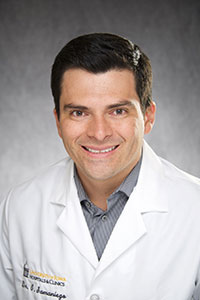
Associate Program Director
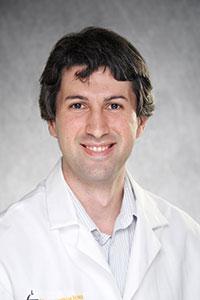
Program Administrator

Heather Clement, MBA
Faculty
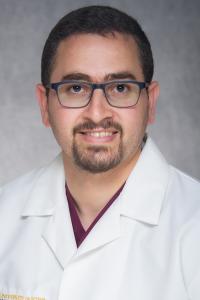
Nurse Practitioner
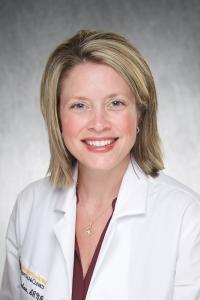
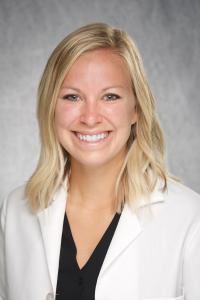
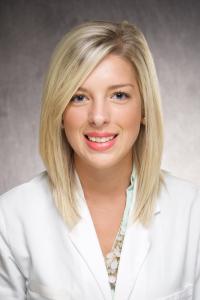
Fellows
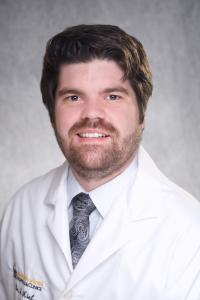
Steven Kiel, DO
Hometown: Bloomington, IL
Medical School: Des Moines University
Residency: University of Iowa
Why Iowa: The stroke service here is a high-volume, high acuity service with a lot of opportunities to learn both straightforward and complex management of stroke. The staff here are very knowledgeable and supportive of our education so I knew I wanted to come back after residency.
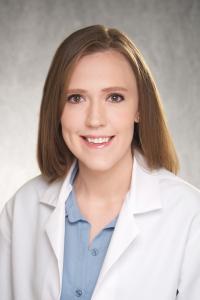
Mikenzy Fassel, MD
Hometown: Golden, CO
Medical School: University of Iowa
Residency: University of Iowa
Why Iowa: By completing my medical school and residency training at UIHC I had the opportunity to see the excellence of the stroke program firsthand. Being one of the oldest programs in the country and a busy stroke center, I knew that I would receive exemplary training.
